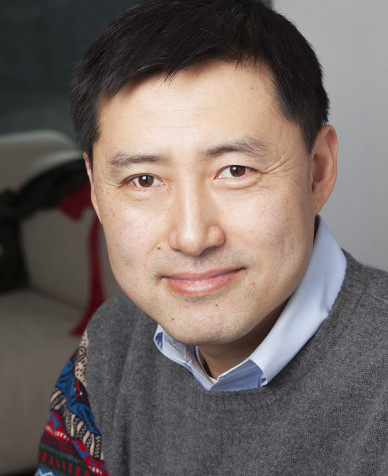
Pu WANG
Cultural critic and Professor of Chinese Literature at Brandeis University
Fellowship : January to June 2020
Discipline(s) : Literature
Pays : United States
Research project: "The Experience of the Faraway: Travel Writing and Utopian Geopolitics in Revolutionary China"
Embracing an emerging field in cultural studies and emphasizing the relationship between travel and revolution in a non-Western context, this study of revolutionary travel literature in twentieth-century China seeks to demonstrate a possibility of spatial mobility and imagination that has been largely neglected by current scholarship: that is,the possibility of self-liberation, of embracing otherness, of searching for the utopian praxis, of developing a solidarity with national or international vastness, not defined by empire or global capital. Highlighting the significance of revolutionary travel as both practice and discourse in modern Chinese culture, this project pursues a broad definition of travel writing. It explores various types of travel-related texts and different forms of political mobility, all chosen from the whole historical sequence of China’s “revolutionary century” from the May Fourth Movement (1917-1925) to the Cultural Revolution (1966-1976) and its aftermath (the 1980s Cultural Fever). By so doing, it aims to show how the utopian geopolitics of the faraway (that is, the experience of the unknown place, no-place, and better place) is imagined, produced, and contested in China’s twentieth century.
Biography
Dr. Pu Wang is a literary scholar, cultural critic, poet, teacher and translator. Born in Datong in China in 1980, he grew up in Beijing and attended Peking University from 1999 to 2006. At PKU he started his career as a poet and critic. He went to New York University for doctoral studies and received his PhD in comparative literature in 2012. Since 2012, he has been working at Brandeis University, where he is currently Associate Professor of Chinese. His first monograph, titled The Translatability of Revolution: Guo Moruo and Twentieth-Century Chinese Culture (Harvard University Asia Center, 2018) was longlisted for the ICAS Book Prize. His Chinese translation of a critical biography of German-Jewish intellectual Walter Benjamin is under contract and forthcoming. His ongoing projects include a new research project about modern Chinese travel literature, a volume of poetic criticism in Chinese, and a series of essays about the controversies surrounding the global 60s and its legacies. Dr. Wang writes poetry in Chinese. His first book of poetry, Baota ji qita (2015), received high acclaim. His awarded poetry has been translated into German and Dutch.
Bibliography
WANG, Pu. The Translatability of Revolution: Guo Moruo and Twentieth-Century Chinese Culture. Cambridge, MA: Harvard University Asia Center, 2018.
WANG, Pu. “Gedichte.” In Chinabox: Neue Lyrik aus der Volksrepublik, edited by Lea Schneider, 112-123 (of the German section) and 90-99 (of the Chinese section). Berlin: Verlaghaus Berlin, 2016.
WANG, Pu. 《宝塔及其他》(The Pagoda and other poems). Yinchuang, China: Yangguang chubanshe, 2015.
WANG, Pu. "The Promethean Translator and Cannibalistic Pains: Lu Xun’s ‘Hard Translation’ as a Political Allegory." Translation Studies 6. 3 (2013): 324-338.
WANG, Pu trans. 《论贝克特》. Translation of an excerpt from Alain Badiou, Beckett: L’increvable désir (Hachette Livre, 1995). In 《字花》(Fleurs des Lettres), no. 22 (Hong Kong: Nov-Dec 2009): 121-125.

